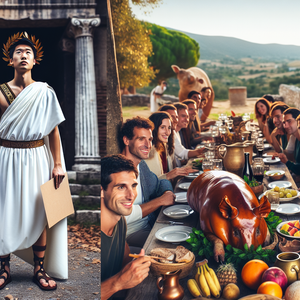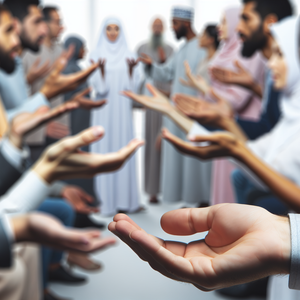Memorial Day: A Global Perspective

Across the globe, numerous countries have established designated days to honor their military personnel. One of the most similar observances to Memorial Day in the U.S. is Remembrance Day, observed in Canada and marked on November 11, the anniversary of the end of World War I. Citizens wear red poppies, a symbol of remembrance inspired by the famous poem "In Flanders Fields," which reflects on the horrors of war and the loss of life. In the United Kingdom, Remembrance Sunday is also held on November 11, featuring ceremonies at war memorials, the laying of wreaths, and moments of silence. The shared date signifies a common acknowledgment of sacrifice and loss across these nations. In Australia and New Zealand, ANZAC Day on April 25 commemorates the Australian and New Zealand Army Corps who served and died in World War I. This day begins with dawn services, followed by marches and the sharing of stories that emphasize national pride and collective memory. The rituals surrounding ANZAC Day serve not only as a remembrance of the past but also as a celebration of the spirit of resilience and camaraderie among those who served.
Cultural Customs and Rituals
Each country infuses its unique cultural elements into its remembrance practices. In Japan, the Bon Festival, or Obon, honors the spirits of ancestors, including those who served in the military. This festival involves lighting lanterns to guide the spirits home and performing traditional dances, blending military remembrance with familial respect for deceased loved ones. This integration of cultural customs highlights the importance of family remembrance alongside national acknowledgment. In contrast, France commemorates its fallen soldiers on Armistice Day with a national ceremony held at the Tomb of the Unknown Soldier beneath the Arc de Triomphe in Paris. The event features the lighting of the eternal flame and a moment of silence, underscoring the sorrow of loss while reminding citizens of the importance of striving for a peaceful future. Such rituals serve as poignant reminders of the costs of conflict and the need for continued advocacy for peace.
Themes of Grief and Remembrance
Despite the diverse customs, a common thread runs through global remembrance days: the themes of grief, reflection, and hope for peace. In Israel, Yom HaZikaron, or Memorial Day for the Fallen Soldiers of the Wars of Israel, is observed with a moment of silence and memorial ceremonies. The day transitions into Yom Ha’atzmaut (Independence Day), symbolizing the continuity of life and hope for a better future. This juxtaposition of mourning and celebration reflects a deep cultural understanding of sacrifice and resilience. In Germany, Volkstrauertag, or the National Day of Mourning, is observed with public ceremonies and educational programs in schools to teach younger generations about the importance of peace and the consequences of war. This engagement fosters a collective understanding of history and the sacrifices made by individuals, encouraging a commitment to peace and reconciliation.
Educational and Community Engagement
Many countries utilize their remembrance days as opportunities for education and community involvement. For instance, in Canada, schools often hold special assemblies or projects aimed at teaching students about the significance of Remembrance Day and the impact of war. Community events, including parades and volunteer activities, create a sense of unity and shared purpose as citizens come together to honor their military history. Similarly, in the United Kingdom, various educational initiatives are undertaken to ensure that the legacy of veterans is passed down through generations. Programs in schools often involve discussions about historical conflicts, the importance of peace, and the personal stories of those who served. Such educational efforts help cultivate a future generation that appreciates the sacrifices made by their predecessors.
While Memorial Day may be a distinctly American observance, the spirit of remembrance resonates globally, uniting nations in their recognition of military sacrifices. The diverse customs and rituals employed worldwide reflect cultural identities while underscoring shared values of grief, respect, and the hope for a peaceful future. By exploring these international perspectives, we not only honor the fallen but also foster a deeper understanding of the universal impact of war and the importance of remembrance. As we commemorate our heroes, may we also strive for a world where such sacrifices are no longer necessary, paving the way for a future characterized by peace and understanding across all nations.
Military Historian
historical societies, universities, government agencies
Job Responsibilities
Conduct in-depth research on military history, analyzing historical events, battles, and the impact of warfare on societies.
Develop educational materials, presentations, and articles to disseminate knowledge about military events and their significance.
Collaborate with museums, universities, and military organizations to curate exhibits and lectures.
Commemorative Event Coordinator
non-profits, local government offices, cultural institutions
Job Responsibilities
Plan and execute memorial events, including ceremonies, parades, and community gatherings to honor military personnel.
Manage logistics, budgets, and vendor relationships to ensure successful and respectful observances.
Engage with veterans’ organizations, local governments, and community groups to promote participation and awareness.
Cultural Anthropologist
universities, research institutions, non-governmental organizations
Job Responsibilities
Study and analyze the rituals and customs related to military remembrance across different cultures, providing insights into societal values and beliefs.
Conduct fieldwork, interviews, and surveys to gather qualitative data about commemoration practices.
Publish research findings in academic journals and present at conferences to share knowledge with peers.
Public Relations Specialist for Veteran Affairs
veteran organizations, government agencies, public relations firms
Job Responsibilities
Develop and implement communication strategies to promote awareness of veterans’ issues and memorial events.
Write press releases, manage social media campaigns, and engage with the media to highlight the importance of military remembrance.
Collaborate with government agencies and non-profits to create impactful messaging that resonates with the community.
Educational Program Developer
schools, museums, educational non-profits
Job Responsibilities
Create and design educational programs that teach students and communities about military history and the significance of remembrance days.
Collaborate with educators, historians, and community leaders to ensure programs are informative and engaging.
Evaluate the effectiveness of programs through feedback and assessments, making adjustments as necessary.


